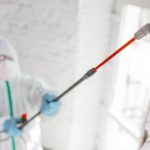
When most people think about air pollution, they often picture smog-filled city skylines or car exhaust on busy highways. But did you know that indoor air quality (IAQ) can be just as crucial—if not more so—for your health? For homeowners in Southwest Florida cities like Naples, Fort Myers, Cape Coral, and Bonita Springs, maintaining good indoor air quality is essential. Due to the region’s warm, humid climate, factors like mold growth and allergens can make IAQ a bigger concern here than in other areas. This article explores why IAQ is vital for your health, the common pollutants to watch for, and how you can improve air quality in your home.
Why Indoor Air Quality (IAQ) Is So Important
On average, Americans spend about 90% of their time indoors, which means the air you breathe at home, work, or school has a major impact on your health. Poor indoor air quality can contribute to immediate symptoms such as allergies, headaches, and fatigue. Long-term exposure to indoor air pollutants can lead to chronic respiratory diseases, cardiovascular problems, and even impact mental well-being.
The effects of poor IAQ can be more pronounced in Florida’s humid climate, where mold and dust mites are more likely to thrive. In areas like Naples or Cape Coral, where the air is naturally moist, indoor pollutants can easily build up, putting your family’s health at risk.
Common Indoor Pollutants in Southwest Florida Homes
Understanding what can harm your indoor air quality is the first step toward creating a healthier living environment. Here are some common indoor pollutants that can impact IAQ in Southwest Florida homes:
- Mold Spores
Due to Southwest Florida’s high humidity, mold is a frequent issue. Mold spores can become airborne, leading to respiratory issues and allergic reactions. Poor ventilation or undetected water leaks can make mold growth even more likely. - Dust and Dust Mites
Dust mites thrive in humid environments, making homes in Fort Myers and Bonita Springs more vulnerable. These microscopic creatures and their waste products can trigger asthma and allergies. - Volatile Organic Compounds (VOCs)
VOCs are chemicals found in household products like paint, cleaning supplies, and furnishings. They can cause irritation to the eyes, nose, and throat and may also be linked to long-term health effects. In homes that are tightly sealed to keep out humid air, VOCs can accumulate without adequate ventilation. - Pet Dander
Many Southwest Florida residents have pets, and while they provide companionship, they can also contribute to poor IAQ. Pet dander can exacerbate asthma and allergies, particularly in individuals with sensitive respiratory systems. - Outdoor Pollutants
Even indoors, we’re not immune to outdoor pollution. Pollen, smog, and vehicle emissions can infiltrate homes, especially during high-pollen seasons or times of poor air quality outside. In areas like Cape Coral and Fort Myers, pollen from local plants can be a frequent irritant for residents.
How Poor IAQ Affects Your Health
Poor indoor air quality can lead to a range of health issues, from mild discomfort to serious health conditions. Here are some ways in which bad IAQ can impact your well-being:
Immediate Effects
- Respiratory Issues: Exposure to pollutants like mold spores, VOCs, or dust can cause coughing, sneezing, and throat irritation.
- Allergy Symptoms: Poor IAQ can worsen allergy symptoms, especially for those with sensitivity to mold, dust, or pet dander.
- Headaches and Fatigue: Poor ventilation and chemical exposure can lead to headaches, eye strain, and fatigue, reducing productivity and overall comfort.
Long-Term Effects
- Chronic Respiratory Problems: Prolonged exposure to airborne pollutants can contribute to chronic asthma and bronchitis. In children, it can affect lung development.
- Cardiovascular Issues: Studies show that long-term exposure to pollutants can contribute to cardiovascular disease, particularly in older adults.
- Mental Health: IAQ can even impact mental well-being. Poor air quality has been associated with decreased cognitive function and increased stress.
For residents in Naples, Fort Myers, or Cape Coral, managing indoor air quality is particularly important because pollutants can become concentrated indoors, exacerbating health risks.
Steps to Improve Indoor Air Quality in Your Home
Given the health risks associated with poor indoor air quality, there are proactive steps you can take to improve the air in your home. Here are some effective measures:
- Ventilate Your Home Regularly
Proper ventilation is key to reducing indoor pollutants. Open windows on drier days to let fresh air circulate, or use exhaust fans to ventilate kitchens, bathrooms, and laundry rooms where moisture tends to accumulate. - Control Humidity
In humid areas like Bonita Springs, controlling indoor humidity is essential. Using dehumidifiers can help keep humidity below 60%, reducing the likelihood of mold growth and dust mites. - Use Air Purifiers with HEPA Filters
Air purifiers with HEPA filters can capture airborne particles, such as mold spores, pet dander, and dust. These can be especially helpful for individuals with allergies or asthma. - Reduce VOCs in Your Home
Opt for low-VOC or VOC-free products when choosing paints, cleaning supplies, or furnishings. Avoid harsh chemicals, and look for natural alternatives where possible. - Change HVAC Filters Regularly
Your HVAC system plays a big role in IAQ. Change filters every 1-3 months to prevent dust and pollutants from recirculating in your home. In Southwest Florida, where HVACs work year-round, clean filters are essential for good air quality. - Schedule Regular Mold Inspections
Professional mold inspections, especially in humid regions like Fort Myers or Naples, can identify and address hidden mold growth before it becomes a serious issue. - Use Indoor Plants Carefully
While some indoor plants can improve air quality by absorbing VOCs, too many plants can increase indoor humidity and promote mold growth. Opt for plants that don’t require frequent watering, and avoid overwatering.
Why Professional Help Matters for IAQ
Indoor air quality management can be challenging in Southwest Florida due to the high humidity and potential for mold growth. Hiring a professional IAQ service provider, like QCI Online, can help homeowners maintain a healthy indoor environment. A professional team can perform air quality assessments, identify sources of pollution, and recommend specific solutions tailored to your home’s needs.
QCI Online offers comprehensive air quality services for Naples, Fort Myers, Cape Coral, and Bonita Springs, ensuring that residents in Southwest Florida can enjoy healthier, cleaner air indoors.
Contact QCI Online for Indoor Air Quality Solutions in Southwest Florida
At QCI Online, we’re dedicated to helping Southwest Florida residents maintain safe and healthy homes. Our team provides air quality testing, mold inspections, and remediation services to improve IAQ in your home. With over 28 years of experience, we understand the unique challenges of maintaining good air quality in humid climates and are committed to providing solutions that fit your needs.
Contact Us
To schedule an air quality assessment or learn more about our services, call us at (239) 777-2875
Good indoor air quality is essential for your well-being, particularly in regions like Southwest Florida, where humidity can increase the risk of mold and other airborne pollutants. By adopting IAQ-improving habits and partnering with professionals for regular inspections and assessments, you can protect your health and enjoy a cleaner, healthier indoor environment year-round.






